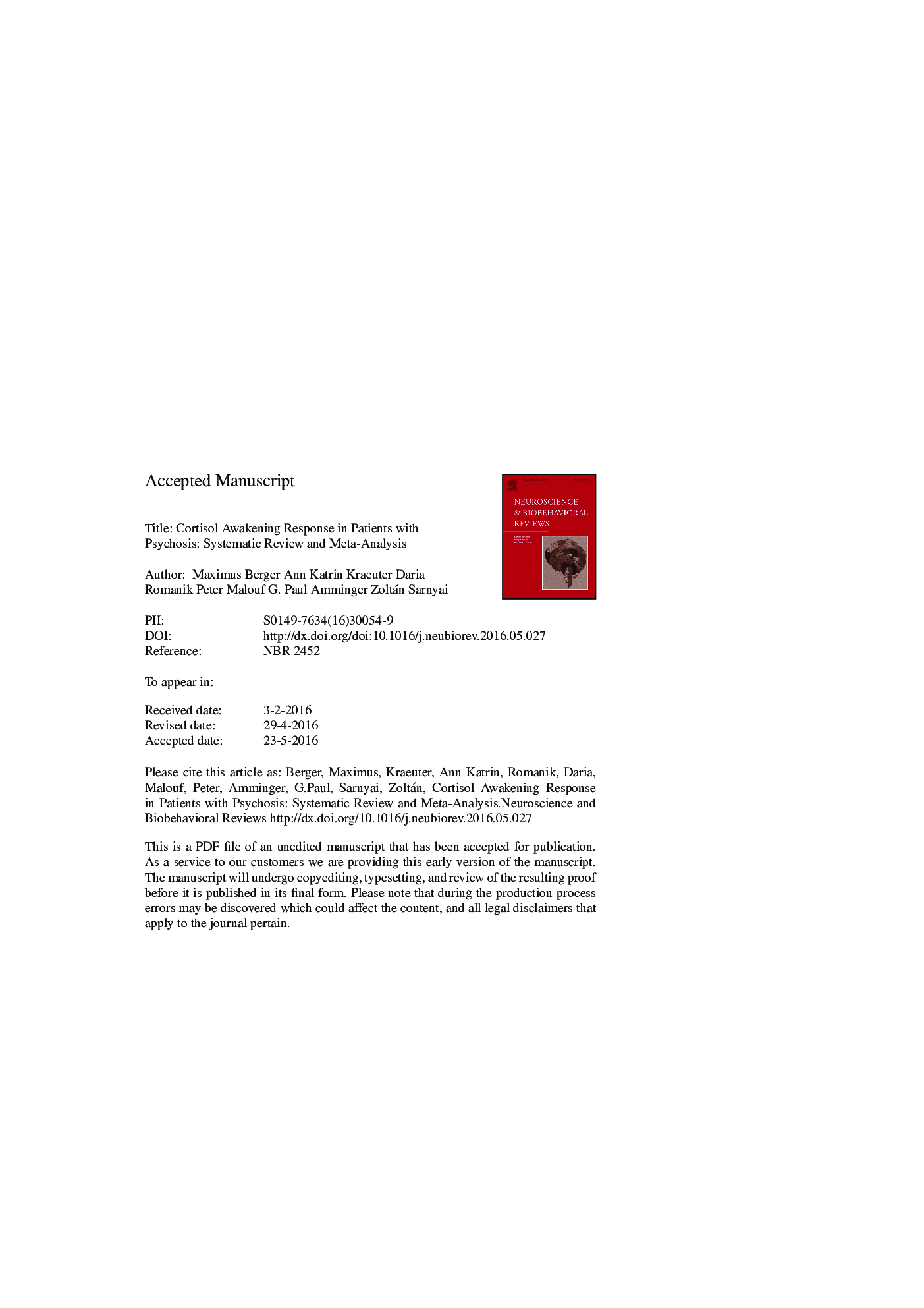| Article ID | Journal | Published Year | Pages | File Type |
|---|---|---|---|---|
| 7302778 | Neuroscience & Biobehavioral Reviews | 2016 | 28 Pages |
Abstract
The cortisol awakening response (CAR), defined as the increase in cortisol release in response to waking up, shows associations with social and environmental risk factors of schizophrenia and has been studied as a potential biomarker in schizophrenia. We report a systematic review and meta-analysis of 11 studies and 879 participants focusing on the CAR of patients with schizophrenia, first-episode psychosis, and at-risk mental states. Random-effects meta-analysis showed that CAR is attenuated in patients with psychosis compared to healthy controls (g = ⿿0.426, 95% CI ⿿0.585 to ⿿0.267, p < 0.001, 11 between-group comparisons, n = 879). Subgroup analysis showed flattened CAR in patients with schizophrenia (g = ⿿0.556, 95% CI ⿿1.069 to ⿿0.044, p < 0.05, 2 between-group comparisons, n = 114) and first-episode psychosis (g = ⿿0.544, 95% CI ⿿0.731 to ⿿0.358, p < 0.001, 6 between-group comparisons, n = 505), but not in individuals with at-risk mental states. These distinctive alterations of hypothalamic-pituitary-adrenal axis function may have important implications for CAR as a marker for transition risk. However, the lack of objective verification of sampling adherence in these studies may limit the interpretation of the results.
Related Topics
Life Sciences
Neuroscience
Behavioral Neuroscience
Authors
Maximus Berger, Ann Katrin Kraeuter, Daria Romanik, Peter Malouf, G. Paul Amminger, Zoltán Sarnyai,
